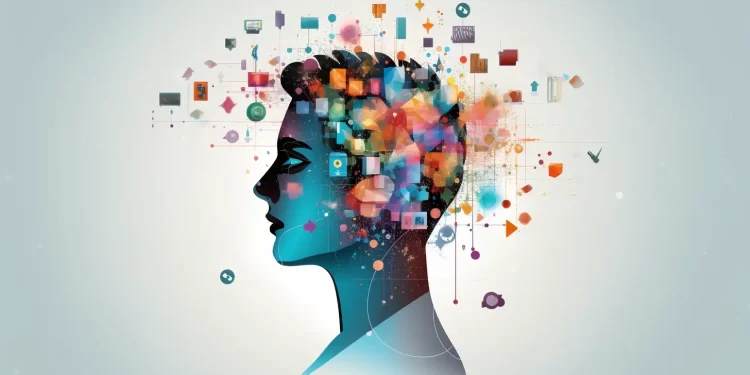Ever wondered how much you scroll through, and click on, daily? Well, I’ll give you an idea. Every day, 95 million posts are published on Instagram, 300 hours of video are uploaded every minute on YouTube, 300 million photos are posted daily on Facebook, 140 million daily tweets, 3 billion daily snaps… You get the idea.
Digital technology has become an important part of our daily lives. Our laptops, smartphones, computers, and tablets are immediate resources and sources of information at our fingertips. Our devices help us at work, allow us to stay connected with friends and family, and can keep us entertained for hours.
Unfortunately, many people have found that in some ways, technology has made life more difficult. Using your device too much can leave you feeling drained physically and mentally. Now, in the age of going out less due to COVID-19, many people are on their devices even more. This can eventually lead to digital overload.
Thankfully, digital overload can be spotted on time, and you can adjust accordingly. Here are a few signs:
• Spending too much time on your devices.
• Consuming too much information.
• Media multitasking by using more than one device at a time.
So how much content is too much?
A recent survey by Nielsen showed that on average, adults spend over 11 hours a day using their phones, laptops, tablets, televisions, and gaming devices. While research has not quite figured out what our limit is when it comes to time online, a study in adolescents showed that after about 2 hours of screen use, subjects reported more symptoms of anxiety and depression. It is likely that for adults, too, less time on devices is better.
The bottom line is, too much information, all at once or over a period, can lead to a number of problems.
What are the symptoms of using too much digital media?
Increased stress levels: research suggests that people who use their computers and check their social media sites may be more irritable, have trouble relaxing, feel fatigued, or have physical symptoms such as headaches.
Mental health issues: People who use their devices excessively have also reported symptoms of depression and anxiety, such as excessive worry, mood swings, and feelings of hopelessness.
Sleep deprivation: using your phone right before going to bed can make it hard to shut your brain off so that you can fall asleep.
Visual problems: when we stare at our screens too much, we risk overworking our eyes. This can cause problems such as eye strain, blurred vision, or dry eyes.
Decreased bone density: due to reduced mobility and lack of physical ability from using our devices excessively, we can experience a decline in bone density
Weight gain: Sedentary behaviour can also make it easier to gain extra weight and increase the risk of type 2 diabetes and high blood pressure.
Managing content exposure and preventing digital overload.
There are simple things you can do that will allow you to enjoy your digital devices while protecting you from digital overload.
• Set time limits on your use: set an alarm that reminds you to put your device down after 30 minutes.
• Use only one device at a time: If you’re on your computer, set your phone or vice versa.
• Turn off unnecessary notifications: I shouldn’t even be explaining this, and I won’t.
• Plan your social media and news activities: Instead of checking your favourite social media and news sites throughout the day, structure time for it.
• Prioritize off-screen activities throughout your day: Take a walk, play a game with your family, or try cooking a new recipe.
• Create tech-free times: You can stop using your device at a certain time each night. Using your device’s “Do Not Disturb” function (an absolute fave of mine) will keep your device-free time from getting interrupted.
• Create tech-free zones. For example, make the dining table a tech-free zone in your home.
These may seem hard, so I’ll say this much, you don’t have to do them all at once. Take your time, start slow and before you know it, you’ll be better at managing how much content you’re exposed to and ultimately experience an improvement in your physical and mental well-being.


